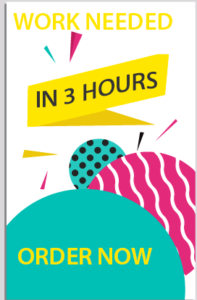Pro abortion not just Pro choice
I am pro-abortion like I’m pro–knee replacement and pro-chemotherapy and pro–cataract surgery. As the last protection against ill-conceived childbearing when all else fails, abortion is part of a set of tools that help women and men to form the families of their choosing. I believe that abortion care is a positive social good. And I suspect that a lot of other people secretly believe the same thing. I think it’s time we said so.
Note: I’m also pro-choice. Choice is about who gets to make the decision.
The question of whether and when we bring a new life into the world is, to my mind, one of the most important decisions a person can make. It is too big a decision for us to make for each other, especially for perfect strangers.
But independent of who owns the decision, I’m pro on the procedure. I’ve decided that it’s time, for once and for all, to count it out on my ten fingers.
Delay and limit childbearing
I’m pro-abortion because being able to delay and limit childbearing is fundamental to female empowerment and equality. A woman who lacks the means to manage her fertility lacks the means to manage her life. Any plans, dreams, aspirations, responsibilities or commitments—no matter how important—have a great big contingency clause built-in: “… until or unless I get pregnant, in which case all bets are off.”
Think of any professional woman you know. She wouldn’t be in that role if she hadn’t been able to time and limit her childbearing. Think of any girl you know who imagines becoming a professional woman. She won’t get there unless she has effective, reliable means to manage her fertility. In generations past, nursing care was provided by nuns and teachers who were spinsters, because avoiding sexual intimacy was the only way women could avoid unpredictable childbearing and so be freed up to serve their communities in other capacities.
But if you think that abstinence should be our model for modern fertility management, consider the little graves that get found every so often under old nunneries and Catholic homes for unwed mothers.
Well-timed pregnancies give children a healthier start in life
I’m pro-abortion because well-timed pregnancies give children a healthier start in life. We now have ample evidence that babies do best when women are able to space their pregnancies and get both prenatal and preconception care. The specific nutrients we ingest in the weeks before we get pregnant can have a lifelong effect on the well-being of our offspring.
Rapid repeat pregnancies increase the risk of low birth-weight babies and other complications. Wanted babies are more likely to get their toes kissed, to be welcomed into families that are financially and emotionally ready to receive them, to get preventive medical care during childhood, and to receive the kinds of loving engagement that help young brains to develop.
I’m pro-abortion because I take motherhood seriously. Most female bodies can incubate a baby; thanks to antibiotics, cesareans, and anti-hemorrhage drugs, most of us are able to survive pushing a baby out into the world. But parenting is a lot of work, and doing it well takes twenty dedicated years of focus, attention, patience, persistence, social support, mental health, money, and a whole lot more.
This is the biggest, most life-transforming thing most of us will ever do. The idea that women should simply go with it when they find themselves pregnant after a one-night stand, or a rape, or a broken condom completely trivializes motherhood.
I’m pro-abortion because intentional childbearing helps couples, families, and communities to get out of poverty.
Decades of research in countries ranging from the United States to Bangladesh show that reproductive policy is economic policy. It is no coincidence that the American middle class rose along with the ability of couples to plan their families, starting at the beginning of the last century. Having two or three kids instead of eight or ten was critical to prospering in the modern industrial economy. Early, unsought childbearing nukes economic opportunity and contributes to multigenerational poverty.
Today in the United States, unsought pregnancy and childbearing is declining for everyone but the poorest families and communities, contributing to what some call a growing “caste system” in America. Strong, determined girls and women sometimes beat the odds, but their stories inspire us precisely because they are the exceptions to the rule. Justice dictates that the full range of fertility management tools—including the best state-of-the-art contraceptive technologies and, when that fails, abortion care—be equally available to all, not just a privileged few.
Reproduction is a highly imperfect process
I’m pro-abortion because reproduction is a highly imperfect process. Genetic recombination is a complicated progression with flaws and false starts at every step along the way. To compensate, in every known species including humans, reproduction operates as a big funnel. Many more eggs and sperm are produced than will ever meet; more combine into embryos than will ever implant; more implant than will grow into babies; and more babies are born than will grow up to have babies of their own.
This systematic culling makes God or nature the world’s biggest abortion provider. Nature’s way of producing healthy kids essentially requires every woman to have an abortion mill built into her own body. In humans, an estimated 60 to 80 percent of fertilized eggs self-destruct before becoming babies. This is why the people who kill the most embryos are those like the Duggars who try to maximize their number of pregnancies. But the weeding-out process is also highly imperfect.
Sometimes perfectly viable combinations boot themselves out; sometimes horrible defects slip through. A woman’s body may be less fertile when she is stressed or ill or malnourished. However, as pictures of skeletal moms and babies show, some women conceive even under devastating circumstances. Like any other medical procedure, therapeutic contraception and abortion complement natural processes designed to help us survive and thrive.







